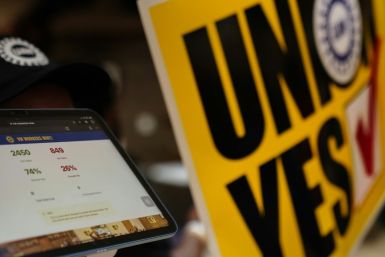Economic outlook 2016: Citi group foresees high probability for US recession and zero interest rate in China

Profound optimism about the New Year and its economic prospects are natural. But 2016 may not be an easy year for the global economy, if the forecast of Citigroup economists is anything to go by.
The economic outlook published by Citi economic strategists projects two possible scenarios -- a looming US recession and the possibility of China slashing its interest rates to zero.
The outlook notes that the US economy will be entering its seventh year of expansion after the global financial crisis of 2008-09. But Citi sees a 65 percent probability for recession as it treats the rapid flattening of the bond yield curve towards inversion as a key warning sign, Reuters reported.
“The cumulative probability of U.S. recession reaches 65 percent next year,” Citi's strategists wrote.
China scene
Regarding China, the note said, deflationary pressures and downside risks may force Beijing to loosen its fiscal policy. That will see the possibility of yuan depreciating and China becoming the first major emerging market economy to cut interest rates to zero.
Meanwhile, leading economist Michael Snyder’s blog —“Economic Collapse” has painted a grim scenario about the US economy and the global economy in general. The blogger said 2015 has showed many new things in the economy, which were not there since 2008.
US stock market crash
In his checklist, there are ample signals to be cautious about an impending stock market crash in the US. Some of the critical indicators that spell a looming crisis in the global economic situation include.
- The price of oil fell below 40 dollars a barrel. This happened in 2008 too, when oil crashed below 40 dollars followed by a stock market collapse. Now that seems to be in the making.
- Copper prices plunged to $2.04 (AU $2.78). Similar price crash happened in 2008 as well just before the stock market collapsed.
- The forecast for business investment by Business Roundtable in 2016 is at at the lowest level since 2009.
- Corporate debt defaults are rising ever since the last recession. Corporate debt in the US doubled since the last financial crisis.
- The Bloomberg US economic surprise index is more negative now than in the past.
- Latest credit card data proves that holiday sales turned negative for the first time since the last recession.
- The US manufacturing sector is contracting at the fastest rate since the recession.
- Commodity prices crashed in 2008 just before the stock market collapsed and the November Bloomberg Commodity Index shows a fall that is 16 year low.
For feedback/comments, contact the writer at feedback@ibtimes.com.au or let us know what you think below.






